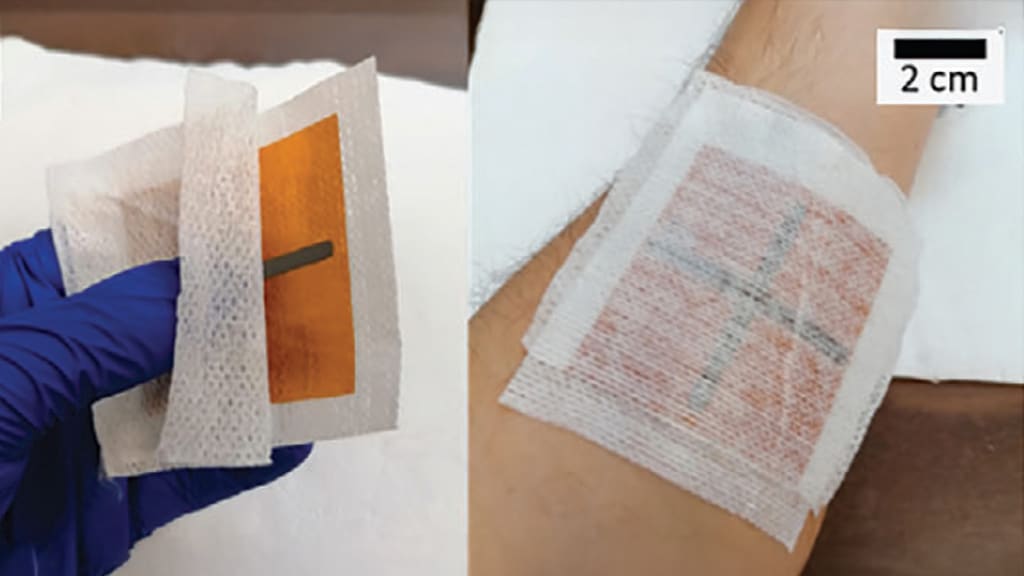
An international team has developed an intelligent device capable of monitoring the temperature of the skin continuously and accurately. The device uses a thermoelectric system that works without batteries or an external power supply to detect temperature variations associated with inflammation and infection.
The device was created as part of a European project in collaboration with researchers from the University of Porto, who specialize in energy recovery systems. The initial aim of this research was to increase the autonomy of sensors used in medical and industrial environments.
The device is based on flexible thermoelectric materials combined with a conductive polymer printed using techniques similar to those used in the printing of T-shirts. This means it can be manufactured on flexible polymeric substrates that can adapt to the skin without difficulty.
The device can be worn for several days before being replaced and in this regard, it is similar to conventional techniques. The sensor can help not only to prevent infections in surgical wounds and pressure ulcers but can also be adapted to other applications such as the monitoring of inflammatory processes or for use in medical packs.
The research team is working on new projects to expand the functionalities of the device, including incorporation of biosensors to measure other physiological variables such as levels of dissolved gases or specific biomarkers.



